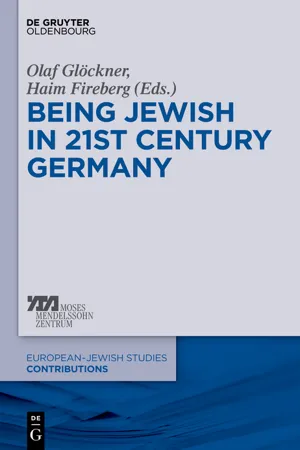| 1 | See: Wolffsohn, Eternal Guilt?, 1993; Wolffsohn/Puschner, Geschichte der Juden in Deutschland, 1992; Wolffsohn, Die Deutschland-Akte, 1995; Wolffsohn, Meine Juden – Eure Juden, 1997; Wolffsohn / Brechenmacher, Deutschland, jüdisch Heimatland, 2008; Brenner (ed.), Geschichte der Juden, 2012. |
| 2 | For details and documentary evidence see Wolffsohn / Brechenmacher, Denkmalsturz? Brandts Kniefall, 2005. |
| 3 | For details, documents and references see: Wolffsohn, 1995. |
| 4 | Again see Wolffsohn, 1995. |
| 5 | Wolffsohn, 1997. |
| 6 | Historically, this may be as absurd (or even abominable considering they were given exit visas based on requests to ‘repatriate to their Jewish homeland’) but who has the right to put them in the docket and what entitles others to judge them? Do collective priorities (Rousseau’s ‘general will’ or Kant’s philosophy) take precedence over individual’s rights to pursuit of happiness (‘individual will’ and freedom of choice)? |
| 7 | Wolffsohn, 1995. |
| 8 | Zatlin, The Bubis Trial in Dresden, Boston University 1951, unpublished paper, presented at a Conference on German Jews since 1945, Munich University, Historisches Kolleg, December 2009, Courtesy of the author. |
| 9 | Personal information to the author by then-acting Saxonian Minister of Justice, Steffen Heitmann, and the leader of the CDU parliamentary group in the Hesse legislature, Dr. Christian Wagner. |
| 10 | Hans Leyendecker, in: Süddeutsche Zeitung, November 13, 2003. |
| 11 | This correspondence is accessible to the academic public, the media, or any other interested person at the archives of the Institut für Zeitgeschichte (Institute for Contemporary History), Munich, Michael Wolffsohn Papers. |
| 12 | Heteromomy: in philosophy, an action that is influenced by a force outside the individual that lacks moral free choice or self-determination. |
| 13 | Goschler/Kauders, Dritter Teil: 1968–1989 Positionierungen. In: Brenner (ed.). Geschichte der Juden in Deutschland, 2012, p. 295. |
| 14 | Wolffsohn / Puschner, 1992, p. 210 with data from 1951 to 1988. For more recent data see Statistisches Jahrbuch Deutschland (Statistical Abstract Germany). |
| 15 | And Along Come Tourists (Am Ende kommen Touristen), directed by Robert Thalheim, [2007] 2008. |
| 16 | The so called “First Auschwitz Trial” in Frankfurt from 1963 to 1965, where 22 members of the extermination camp administration, mainly in low ranking positions, were charge for murder, can serve as an example of this attitude. None of the accused uttered a word of excuse or regret. Confer: http://www.auschwitz-prozess.de/ (accessed January 10, 2013). |
| 17 | Alexander, Trauma, 2012. |
| 18 | The Devil’s General (Des Teufels General), directed by Helmut Käutner, [1955] 2009. |
| 19 | Stalingrad: Dogs, Do You Want to Live Forever (Hunde, wollt ihr ewig leben?), directed by Frank Wisbar, [1959] 2001. |
| 20 | Am grünen Strand der Spree – Große Geschichten, directed by Fritz Umgelter, [1960] 2014. |
| 21 | The Downfall (Der Untergang), directed by Oliver Hirschbiegel, [2004] 2004. |
| 22 | Schulz, Der Nationalsozialismus im Film, 2012, p. 504. According to Schulz there were plans by Romuald Karmakar... |
